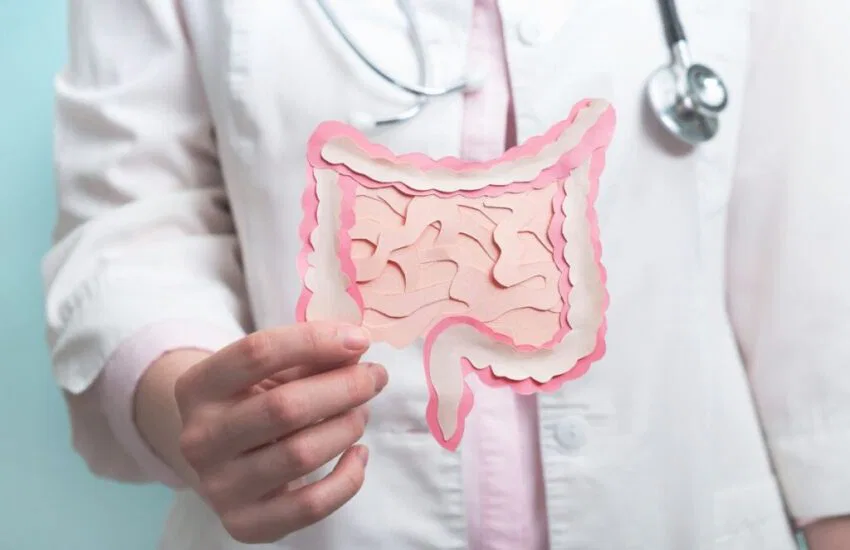A Guide On How To Balance Gut Bacteria For Better Health

Published December 4, 2024
Have you ever wondered how the tiny organisms in your gut affect your well-being? The human gut is a complex ecosystem, home to the gut microbiome—a community of bacteria that does more than aid digestion. These microorganisms are crucial for immunity, mental health, and more. When their balance is upset, it can lead to health issues. Are you taking care of your gut health?
In this article, we’ll explore how to balance gut bacteria for better health. We’ll uncover the typical causes of imbalance and outline the steps you can take to cultivate a healthy gut microbiome.
Understanding The Gut Microbiome And Its Importance
Your gut microbiome houses trillions of microorganisms. These include bacteria, fungi, and viruses in your gastrointestinal tract. These microbes have crucial roles. They help digest food, absorb nutrients, and produce essential vitamins.
The gut microbiome does more than aid digestion. It influences your immune system and shields against harmful microbes. Due to its connection to the brain, it also impacts your mood and mental health.
Often called the “second brain,” this system is crucial. It produces neurotransmitters like serotonin and contains about 70% of the immune system. Thus, maintaining a healthy microbiome is vital for overall well-being.

Causes Of Gut Imbalance
A gut microbiome imbalance occurs when harmful bacteria outnumber beneficial ones. This often happens due to diet, medications, stress, or other influences.
Here are some common causes of gut imbalance:
- Digestive discomfort. Symptoms such as bloating, gas, constipation, or heartburn often signify an imbalanced gut. A balanced gut efficiently processes food and eliminates waste with minimal issues.
- Unexpected weight fluctuations. Experiencing weight gain or loss without changes to your diet or activity levels might indicate gut issues. An imbalance in your gut can impact your body’s ability to control blood sugar, store fat, or adequately absorb nutrients.
- Constant fatigue. Do you often feel inexplicably tired? Your gut could be the culprit. A lack of variety in gut bacteria may lead to fatigue, poor sleep, and insomnia. Since serotonin—a hormone associated with sleep—is produced in the gut, an imbalanced microbiome can disrupt your rest.
- Irritating skin conditions. Skin troubles such as eczema, acne, or rashes can often be linked to gut health. A surplus of harmful bacteria in the gut can lead to inflammation, which in turn triggers these skin issues.
- Food intolerance. Struggling to digest certain foods doesn’t always indicate an allergy. Often, food intolerances occur when your gut lacks the essential bacteria needed to break down specific foods.
- Changes in mood. The gut and brain are closely linked. Disturbances in gut health can impact dopamine and serotonin production. This may cause anxiety, depression, or mood swings.
Now that you understand the causes of an imbalanced gut, let’s explore how to balance gut bacteria for improved health.

Strategies For Balancing Gut Bacteria
If you’re curious about how to fix unhealthy gut, there are effective methods to achieve it. You can boost your gut health with some simple lifestyle changes.
Here’s how to foster balance within your microbiome:
Dietary Adjustments
Your diet plays a crucial role in maintaining gut balance and health. To promote a healthier gut, reduce your intake of high-sugar, processed, and high-fat foods. Focus on a well-balanced diet rich in plant-based foods, fiber, and lean proteins.
Prioritize Quality Sleep
Sleep and gut health are interconnected. Lack of sleep can diminish beneficial gut bacteria, just as an imbalanced gut can disturb sleep patterns. Strive for 7-9 hours of restful sleep each night to enhance overall health.
Limit Unnecessary Medications
Certain medications can harm the beneficial bacteria in your gut. Although certain medications are necessary, you must use them only as your doctor prescribes. Antibiotics, while targeting harmful bacteria, can also eliminate beneficial bacteria. Medications such as antacids, NSAIDs, and steroids can harm the gut’s healthy bacteria. Birth control and hormone replacements may also have adverse effects.
Supplement With Prebiotics And Probiotics
The addition of prebiotics and probiotics in your diet can help improve gut health. Prebiotics in foods like bananas, onions, garlic, and leafy greens feed your good bacteria. Probiotics are typically found in yogurt and fermented foods such as sauerkraut, kombucha, and kefir. They are also in non-pasteurized pickled vegetables and kimchi. These introduce beneficial bacteria directly into your gut. Supplements are also an option but seek medical advice before starting.
Increase Your Water Intake
Drinking more water is a straightforward way to maintain good gut health. Proper hydration helps your digestive system function smoothly and supports bacterial gut balance. For best results, replace alcohol or caffeinated drinks with water.
Minimize Stress
Stress can damage gut health. Incorporate simple activities to reduce stress hormones. Try walking, practicing yoga, or enjoying a massage. A good laugh helps, too. This, in turn, allows the gut to produce more serotonin and dopamine.
Frequently Asked Questions
What foods can affect gut health negatively or positively?
High sugar, processed foods, and excess alcohol can harm gut health by promoting harmful bacteria. Prebiotic-rich foods like whole grains, onions, and garlic support beneficial bacteria, and probiotics in fermented foods also encourage healthy gut bacteria.
Can medications alter gut health?
Various medications, including antibiotics, antidepressants, and antacids, can disrupt your gut microbiome. Antibiotics, notably, eliminate both beneficial and harmful bacteria, causing an imbalance. It’s advisable to consult your doctor about gut-friendly alternatives whenever possible.
Do probiotics alter your gut microbiome?
Probiotics play a vital role in restoring balance when your gut is misaligned. By introducing beneficial bacteria, they bolster digestive health. Not all probiotic strains are effective for every condition, so it’s advisable to seek guidance before selecting supplements.
Why does the gut microbiome differ among individuals?
Your microbiome is unique, like a fingerprint. It is influenced by genetics, age, environment, diet, and lifestyle. Even stress levels and sleep patterns can affect the diverseness and balance of your gut bacteria.
Consider Bionaze For Enhanced Gut And Overall Health
Implementing lifestyle changes and dietary adjustments can enhance gut health. Adding targeted supplements like Bionaze provides extra support.
Bionaze contains two patented probiotic strains, specifically BLIS K12™ and BL-04™, that have been clinically tested for effectiveness. These strains promote gut balance and address chronic sinuses, ears, nose, throat, and mouth issues. They offer a comprehensive solution for improving well-being.
Bionaze supports a healthy microbiome by introducing beneficial bacteria. It promotes sinus and nasal health and enhances drainage. It also improves breath and boosts immune health. Its unique formulation is an excellent addition to a gut health regimen. Always consult a healthcare professional before trying any new probiotic supplement to ensure it aligns with your health needs and goals.

Nurture Your Gut, Transform Your Health
Your gut microbiome is vital to your well-being, affecting everything from digestion to mental health. Knowing how to balance gut bacteria is essential to boosting your health. You can make a big difference by spotting signs of an imbalanced gut and taking action. Small changes can significantly improve whether you choose a plant-based diet, focus on better sleep, or increase water intake. You’re in control. With consistent effort, you can nurture a thriving gut microbiome and enjoy a healthier, happier life. Remember, caring for your gut is essential to your wellness.
Benefit From The Latest Advancements In Probiotic Science With Bionaze
Bionaze is a proprietary blend of probiotics proven to promote ear, nose, and throat health, improve digestion, and support your immune system. The active ingredients BLIS K12, and BL-04 are considered among the best probiotics according to science.
Get 25% Off Your First Order when you use BIO25 at checkout!

This Content Has Been Reviewed For Factual Accuracy
This content has undergone thorough fact-checking by our team of internal experts. Learn more about the meticulous editorial standard for our website here.
ADVERTISEMENT

About The Author
Hi, I’m Corinne Grace, a proud nursing graduate from Riverside College with a flair for writing. I specialize in health and wellness topics, using my educational background to weave informative and attention-grabbing articles that appeal to a wide variety of readers.




